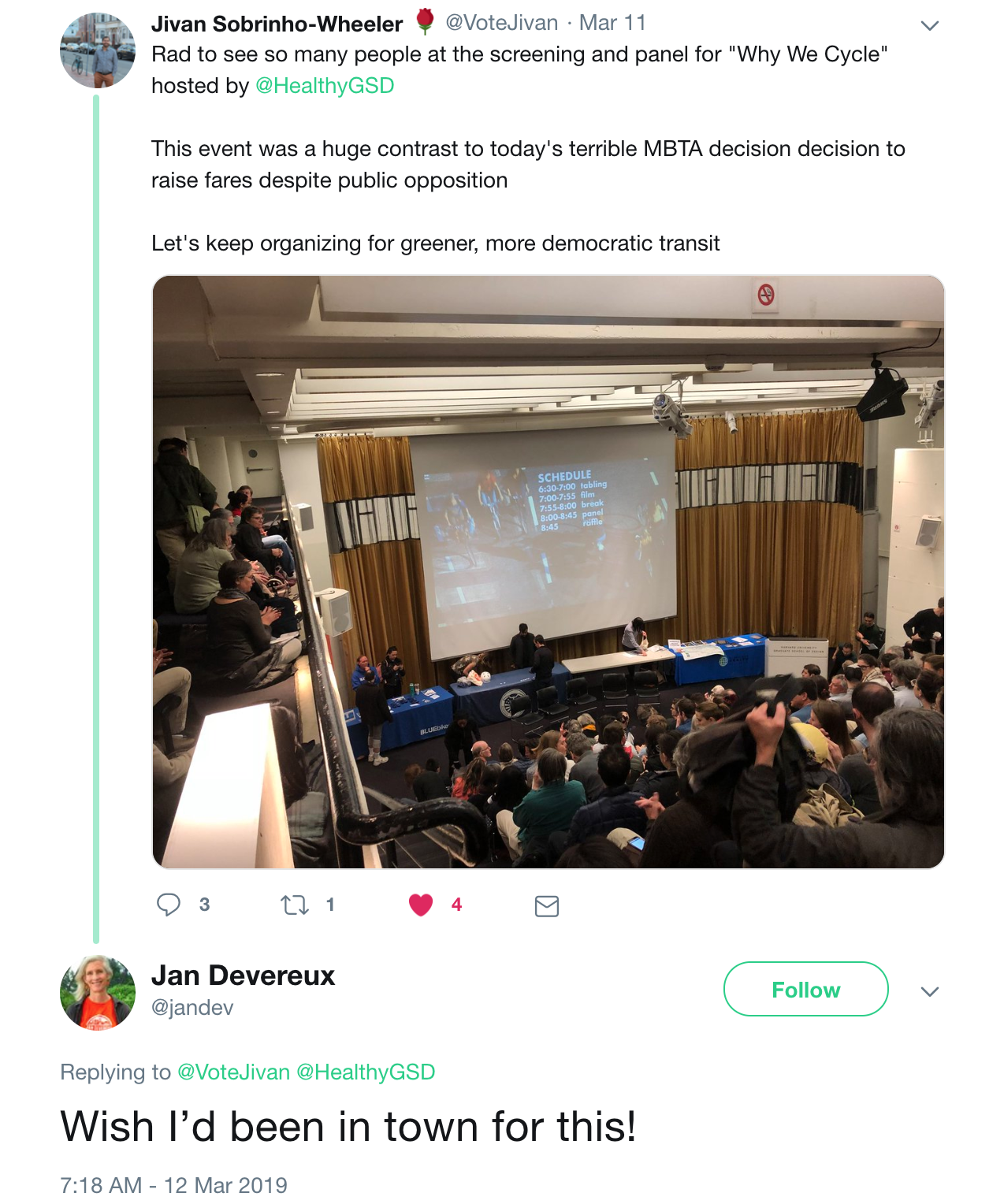Building Social Infrastructure for Bicycling Infrastructure
As a key strategy to building healthy places, cities across the world are physically reshaping their streets by expanding infrastructure dedicated solely for bicycling. From Cambridge to Bogota and Oslo to Seville, cities not located in The Netherlands are doubling-down on bicycling.
However, there is a growing recognition that in order to promote wide-scale adoption of bicycling, investments in physical infrastructure must also be paired with investments in social infrastructure. As defined by Dr. Adonia Lugo, the social infrastructure are the social networks and human relationships that build a community that values bicycling.
In order to promote social infrastructure for bicycling in our local community, in March 2019, the Healthy Places GSD student group thus hosted the Boston area premiere of Why We Cycle, a documentary about Dutch cycling culture. Overall, the event was a huge success as about 200 people packed into the GSD’s Piper Auditorium.

The film screening was followed by a panel moderated by Lily Song of the Harvard GSD, featuring Michelle Cook of Roxbury Rides, Angela Johnson of Transportation for Massachusetts, Cara Seiderman of the City of Cambridge, and Anne Lusk of the Harvard T.H. Chan School of Public Health.

Although there are many countervailing forces against bicycle urbanism in the United States, such as a rise in cycling deaths and a cultural and economic apparatus that impels people to own motor vehicles, our event showed that there is a large appetite for a different urban future in Boston. A future urban mobility that allows residents to improve their health and mitigate climate change at the same time.
Cycling truly can transform a society. And social infrastructure events like ours are important pedals forward in achieving that vision for the Boston area.

This event was generously supported by the Transforming Urban Transport Project, the Department of Urban Planning & Design, the Department of Environmental Health, the Department of Nutrition, the Harvard Office of Sustainability, the Planetary Health Alliance, and the Center for Climate, Health, and the Global Environment.